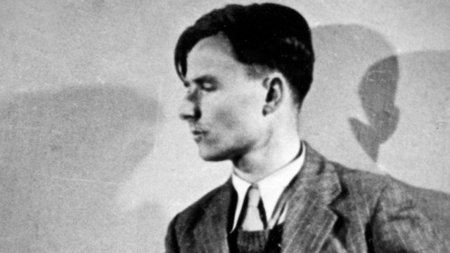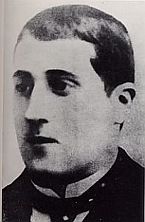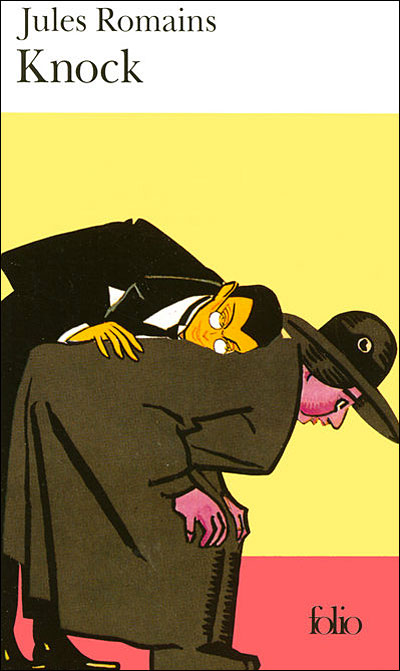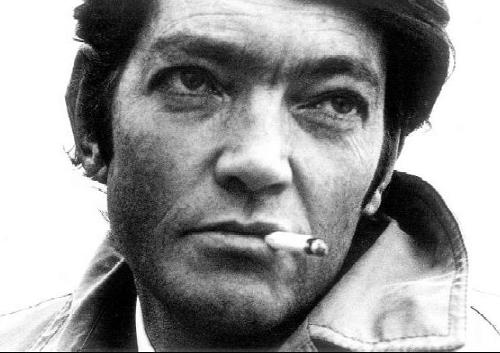De Brits-Amerikaanse schrijver Christopher Isherwood werd geboren op 26 augustus 1904 inDisley in het graafschap Cheshire in Engeland. Zie ook mijn blog van 26 augustus 2010 en eveneens alle tags voor Christopher Isherwood op dit blog.
Uit: Goodbye to Berlin
„This morning, as I was walking down the Bülowstrasse, the Nazis were raiding the house of a small liberal pacifist publisher. They had brought a lorry and were piling it with the publisher’s books. The driver of the lorry mockingly read out the titles of the books to the crowd:
“Nie Wieder Krieg!” he shouted, holding up one of them by the corner of the cover, disgustedly, as though it were a nasty kind of reptile. Everybody roared with laughter.
“‘No More War!'” echoed a fat, well-dressed woman, with a scornful, savage laugh. “What an idea!”
(,,,)
At present, one of my regular pupils is Herr N., a police chief under the Weimar régime. He comes to me every day. He wants to brush up his English, for he is leaving very soon to take up a job in the United States. The curious thing about these lessons is that they are all given while we are driving about the streets in Herr N.’s enormous closed car. Herr N. himself never comes into our house: he sends up his chauffeur to fetch me, and the car moves off at once. Sometimes we stop for a few minutes at the edge of the Tiergarten, and stroll up and down the paths—the chauff eur always following us at a respectful distance.
Herr N. talks to me chiefly about his family. He is worried about his son, who is very delicate, and whom he is obliged to leave behind, to undergo an operation. His wife is delicate, too. He hopes the journey won’t tire her. He describes her symptoms, and the kind of medicine she is taking. He tells me stories about his son as a little boy. In a tactful, impersonal way we have become quite intimate. Herr N. is always charmingly polite, and listens gravely and carefully to my explanations of grammatical points. Behind everything he says I am aware of an immense sadness.
We never discuss politics; but I know that Herr N. must be an enemy of the Nazis, and, perhaps, even in hourly danger of arrest. One morning, when we were driving along the Unter den Linden, we passed a group of self-important S.A. men, chatting to each other and blocking the whole pavement. Passers-by were obliged to walk in the gutter. Herr N. smiled faintly and sadly: “One sees some queer sights in the streets nowadays.” That was his only comment.
Sometimes he will bend forward to the window and regard a building or a square with a mournful fixity, as if to impress its image upon his memory and to bid it good-bye.“

Christopher Isherwood (26 augustus 1904 – 4 januari 1986)
De Franstalige schrijver en dichter Guillaume Apollinaire werd in Parijs geboren op 26 augustus 1880. Zie ook mijn blog van 26 augustus 2010 en eveneens alle tags voor Guillaume Apollinaire op dit blog.
À la Santé
I
Avant d’entrer dans ma cellule
Il a fallu me mettre nu
Et quelle voix sinistre ulule
Guillaume qu’es-tu devenu
Le Lazare entrant dans la tombe
Au lieu d’en sortir comme il fit
Adieu adieu chantante ronde
Ô mes années ô jeunes filles
III
Dans une fosse comme un ours
Chaque matin je me promène
Tournons tournons tournons toujours
Le ciel est bleu comme une chaîne
Dans une fosse comme un ours
Chaque matin je me promène
Dans la cellule d’à côté
On y fait couler la fontaine
Avec les clefs qu’il fait tinter
Que le geôlier aille et revienne
Dans la cellule d’à côté
On y fait couler la fontaine
V
Que lentement passent les heures
Comme passe un enterrement
Tu pleureras l’heure où tu pleures
Qui passera trop vitement
Comme passent toutes les heures
VI
J’écoute les bruits de la ville
Et prisonnier sans horizon
Je ne vois rien qu’un ciel hostile
Et les murs nus de ma prison
Le jour s’en va voici que brûle
Une lampe dans la prison
Nous sommes seuls dans ma cellule
Belle clarté Chère raison

Guillaume Apollinaire (26 augustus 1880 – 9 november 1918)
De Franse schrijver Jules Romains, pseudoniem van Louis Henri Farigoule, werd geboren op 26 augustus 1885 in La Chapuze in het kanton Saint-Julien-Chapteuil. Zie ook mijn blog van 26 augustus 2007 en ook mijn blog van 26 augustus 2008 en ook mijn blog van 26 augustus 2009 en ook mijn blog van 26 augustus 2010
Uit: KNOCK
“LA DAME
Non.
KNOCK
Vous êtes constipée.
LA DAME
Oui, assez.
KNOCK, il l’ausculte.
Baissez la tête. Respirez. Toussez. Vous n’êtes jamais tombée d’une échelle, étant petite?
LA DAME
Je ne me souviens pas.
KNOCK,il lui palpe et lui percute le dos, lui presse brusquement les reins.
Vous n’avez jamais mal ici le soir en vous couchant? Une espèce de courbature?
LA DAME
Oui, des fois.
KNOCK,il continue de I’ausculter.
Essayez de vous rappeler. Ça devait être une grande échelle.
LA DAME
Ça se peut bien.
KNOCK, très affirmatif.
C’était une échelle d’environ trois mètres cinquante, posée contre un mur. Vous êtes tombée à la renverse. C’est la fesse gauche, heureusement, qui a porté.
LA DAME
Ah oui!
KNOCK
Vous aviez déjà consulté le docteur Parpalaid?
LA DAME
Non, jamais.
KNOCK
Pourquoi ?
LA DAME
Il ne donnait pas de consultations gratuites. »

Jules Romains (26 augustus 1885 – 14 augustus 1972)
Boekomslag
De Duitse dichter en schrijverWalter Helmut Fritz werd geboren op 26 augustus 1929 in Karlsruhe. Walter Helmut Fritz overleed op 20 november 2010 op 81-jarige leeftijd. Zie ook mijn blog van 26 augustus 2007 en ook mijn blog van 26 augustus 2008 en ook mijn blog van 26 augustus 2009 en ook mijn blog van 26 augustus 2010
Uit: Augenblicke
„In einem Geschäft für Haushaltungsgegenstände fragte sie, ob es in der Nähe nicht eine Wohnungsvermittlung gebe. Man bedauerte. Sie fragte in der Apotheke, bekam eine ungenaue Auskunft. Vielleicht im nächsten Haus. Dort läutete sie. Schilder einer Abendzeitung, einer Reisegesellschaft, einer Kohlenfirma. Sie läutete umsonst.
Es war später Nachmittag, Samstag, zweiundzwanzigster Dezember.
Sie sah in eine Bar hinein. Sie sah den Menschen nach, die vorbeigingen. Sie trieb mit. Sie betrachtete Kinoreklamen.
Sie ging Stunden umher. Sie würde erst spat zurückkehren. Ihre Mutter würde zu Bett gegangen sein. Sie würde ihr nicht mehr gute Nacht zu sagen brauchen.
Sie würde sich, gleich nach Weihnachten, eine Wohnung nehmen. Sie war zwanzig Jahre alt und verdiente. Kein einziges Mai würde sie sich mehr beherrschen können, wenn ihre Mutter zu ihr ins Bad kommen würde, wenn sie sich schminkte. Kein einziges Mal.
Ihre Mutter lebte seit dem Tod ihres Mannes allein. Oft empfand sie Langeweile. Sie wollte mit ihrer Tochter sprechen. Weil sich die Gelegenheit selten ergab (Elsa schützte Arbeit vor), suchte sie sie auf dem Flur zu erreichen oder wenn sie im Bad zu tun hatte. Sie liebte Elsa. Sie verwöhnte sie. Aber sie, Elsa, würde kein einziges Mai mehr ruhig bleiben können, wenn sie wieder zu ihr ins Bad käme.
Elsa floh.
Über der Straße künstliche, blau, rot, gelb erleuchtete Sterne. Sie spürte Zuneigung zu den vielen Leuten, zwischen denen sie ging.
Als sie kurz vor Mitternacht zurückkehrte, war es still in der Wohnung. Sie ging in ihr Zimmer, und es blieb still. Sie dachte daran, daß ihre Mutter alt und oft krank war. Sie kauerte sich in ihren Sessel, und sie hätte unartikuliert schreien mögen, in die Nacht mit ihrer entsetzlichen Gelassenheit.“

Walter Helmut Fritz ( 26 augustus 1929 – 20 november 2010)
De Argentijnse schrijver Julio Cortázar werd geboren op 26 augustus 1914 in Brussel. Zie ook mijn blog van 26 augustus 2010 en eveneens alle tags voor Julio Cortázar op dit blog.
Uit: Hopscotch
“That business about progress in art is ancient nonsense,” Etienne said, “but in jazz as in any art there’s always a flock of fakers. Music that can be translated into emotion is one thing, but emotion which pretends to pass as music is another. Paternal grief in F sharp, sarcastic laughter in yellow, violet and black. No, my boy, it’s hard to say where art begins, but it’s never that stuff.”
No one seemed disposed to contradict him because Wong had quietly appeared with the coffee and Ronald, shrugging his shoulders, had turned loose Fred Waring and his Pennsylvanians and after a terrible scratching they reached the theme that fascinated Oliveira, an anonymous trumpet followed by the piano, all wrapped up in the smoke of an old phonograph and a bad recording, of a corny prejazz band, all in all like those old records, showboats, Storyville nights, where the old only really universal music of the century had come from, something that brought people closer together and in a better way than Esperanto, UNESCO, or airlines, a music which was primitve enough to have gained such universality and good enough to make its own history, with schisms, abdications, and heresies, its Charleston, its Black Bottom, its Shimmy, its Fox Trot, its Stomp, its Blues, to label its forms, this style and the other one, swing, bebop, cool, a counterpoint of romanticism and classicism, hot and intellectual jazz, human music, music with a history in contrast to stupid animal dance music, the polka, the waltz, the zamba, a music that could be known in Copenhagen as well as in Mendoza or Cape Town, a music that brings adolescents together, with records under their arms, that gives them names and melodies to use as passwords so they can know each other and become intimate and feel less lonely surrounded by bosses, families, and bitter love affairsm a music that accepts all imaginations and tastes, a collection of instrumental 78’s with Freddie Keppard or Bunk Johnson, the reactionary cult of Dixieland, an academic specialization in Bix Beiderbecke, or in the adventures of Thelonious Monk, Horace Silver, or Thad Jones, the vulagarities of Erroll Garner or Art Tatum, repentance and rejection, a preference for small groups, mysterious recordings with false names and strange titles and labels made up on the spur of the moment, and that whole freemasonry of Saturday nights in a student’s room or in some basement cafe with girls who would rather dance to “Stardust” or “When Your Man Is Going to Put You Down,” and have a sweet slow smell of perfume and skin and heat, and let themselves be kissed when the hour is late and somebody has put on the “The Blues With a Feeling” and hardly anybody is really dancing, just standing up together, swaying back and forth, and everything is hazy and dirty and lowdown and every man is stroking shoulders and the girls have their mouths half-opened and turn themselves to delightful fear and the night, taking them with a single hot phrase that drops them like a cut flower into the arms of their partners, and there comes a motionless race, a jump up into the night air, over the city until a miniature piano brings them to again, exhausted, reconciled, and still virgins until next Saturday,…”

Julio Cortázar (26 augustus 1914 – 12 februari 1984)
Zie voor nog meer schrijvers van de 26e augustus ook mijn vorige blog van vandaag.
